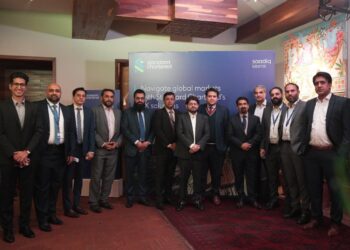Hyderabad, In response to the recent heavy rainfall that has disrupted life across several districts of interior Sindh, including Hyderabad, Muttahida Qaumi Movement (MQM) Pakistan has taken swift action by announcing the establishment of relief camps to support affected citizens. The initiative, spearheaded by MQM Pakistan Chairman Dr. Khalid Maqbool Siddiqui, reflects the party’s proactive stance on public service and community welfare during natural disasters.
As severe monsoon rains lashed cities and rural areas, resulting in urban flooding, power outages, drainage issues, and blocked roads, the situation has become increasingly challenging for residents. In this critical hour, MQM Pakistan has mobilized its organizational infrastructure to address the immediate needs of those affected.
Heavy Monsoon Rains Paralyze Interior Sindh
Over the past several days, interior Sindh, including key cities like Hyderabad, Mirpurkhas, Nawabshah, Tando Allahyar, Badin, and Dadu, has been witnessing intense monsoon rainfall, causing flooded streets, water accumulation in low-lying areas, and interruptions in power and sanitation services.
According to the Pakistan Meteorological Department (PMD), the monsoon system currently hovering over Sindh has brought above-normal rainfall to many areas, surpassing seasonal averages. This has overwhelmed local drainage systems and exposed the fragility of urban infrastructure, particularly in areas where maintenance had already been lacking.
Reports from Hyderabad indicated severely clogged sewerage lines, power blackouts lasting over 12 hours, and disruption of transportation. Many homes in flood-prone zones were inundated with knee-deep water, causing panic among families, especially the elderly and children.
MQM Chairman’s Directive: Be Among the People
In a decisive move, Dr. Khalid Maqbool Siddiqui, chairman of MQM Pakistan, issued instructions via telephonic communications with party lawmakers and organizational officials across the affected regions. He urged all party representatives to remain physically present among the people and to act promptly in facilitating relief and resolving local challenges.
“This is a time when political representatives must become true servants of the people,” Dr. Siddiqui said in a media statement. “We must ensure that no citizen feels alone in this difficult hour.”
He emphasized that organizational units in interior Sindh, particularly in Hyderabad and surrounding districts, should serve as relief coordination points and immediately begin outreach to impacted communities.
Emergency Relief Camps Set Up Across Sindh
In line with the party leadership’s instructions, emergency relief camps are being established at MQM Pakistan’s zonal and sector offices in key districts, including:
- Hyderabad
- Mirpurkhas
- Nawabshah
- Tando Muhammad Khan
- Matiari
- Umerkot
- Sanghar
These relief camps aim to:
- Provide immediate assistance to flood-affected families
- Register complaints related to electricity, drainage, and sanitation
- Distribute essential supplies, such as food, clean drinking water, and medicines
- Coordinate with local municipal bodies and utilities to resolve urgent civic problems
The party spokesperson said that trained volunteers will be present at each camp to facilitate assistance and logistics.
Volunteers and Public Representatives Mobilized
In addition to setting up the relief infrastructure, MQM Pakistan has mobilized hundreds of volunteers, particularly its youth and welfare wings, to:
- Conduct door-to-door assessments
- Assist in clearing blocked drains
- Help evacuate families from waterlogged homes
- Provide first aid and essential food items
Party lawmakers and local leaders have also been instructed to maintain active contact with relevant government departments, such as:
- Water and Sanitation Agencies (WASA)
- Hyderabad Electric Supply Company (HESCO)
- District Disaster Management Authorities (DDMAs)
- Health and Rescue Departments
Dr. Siddiqui highlighted the importance of political will and administrative pressure in ensuring that these civic agencies perform their duties without delay.
Appeal to Government for Enhanced Coordination
While MQM Pakistan has initiated its own relief drive, the party has also urged the Sindh provincial government and federal agencies to step up their disaster management efforts. In a press briefing, the MQM spokesperson emphasized the need for:
- Deployment of additional de-watering pumps
- Restoration of electricity and water supply
- Immediate medical camps in areas with stagnant water to prevent disease outbreaks
- Ensuring the presence of local administration officials on the ground
“The people of Sindh cannot afford bureaucratic delays or political blame games. Relief and rehabilitation must be the priority,” said the spokesperson.
Public Response and Grassroots Support
As news of the relief camps spread, local communities have begun reaching out to MQM offices for help. In Hyderabad’s Latifabad and Qasimabad areas, several families approached MQM volunteers seeking dry rations, mosquito repellent, and first-aid kits.
Residents expressed appreciation for the quick response. One flood-affected resident, Amina from Unit 7 Hyderabad, said, “No other political party came to check on us. MQM workers not only listened to us but also sent food and helped clear the water from our street.”
Local religious and business communities have also started offering support by donating food supplies, clothing, and fuel for generators being used in the camps.
Historic Role of MQM in Urban Relief Efforts
MQM Pakistan has a longstanding reputation for launching on-ground relief efforts during natural disasters, especially in urban centers. During the 2010 floods, heatwaves in Karachi, and previous rain emergencies, the party’s organizational units were among the first responders in several areas.
Their strategy typically includes:
- Community mobilization
- Establishment of quick-response relief hubs
- Volunteer coordination
- Use of organizational infrastructure for logistics and communication
This legacy of grassroots activism continues to be a core part of MQM’s political identity, particularly in urban Sindh.
The Way Forward: Preventive Planning and Accountability
While emergency response is underway, MQM leadership has also called for long-term solutions to urban flooding in Sindh. Dr. Siddiqui and other party leaders stressed the importance of:
- Upgrading urban drainage systems
- Implementing solid waste management
- Ensuring year-round maintenance of stormwater drains
- Holding municipal officials accountable for negligence
Experts agree that pre-monsoon preparation has been lacking in many districts, despite warnings from meteorological authorities. Several stormwater drains in Hyderabad had reportedly been clogged for months, compounding the flooding.
Conclusion: MQM Stands with the People of Sindh
As the rains continue to disrupt lives across interior Sindh, MQM Pakistan’s swift and structured response has emerged as a beacon of hope for many affected families. By leveraging its organizational discipline, community networks, and public representatives, the party has shown that timely action and empathy can make a significant difference during a crisis.
In the words of Dr. Khalid Maqbool Siddiqui:
“We are not just a political party; we are a movement that believes in serving people during their most difficult times. MQM Pakistan will continue to stand shoulder to shoulder with the citizens of Sindh.”
With emergency relief camps operational, volunteers on the ground, and public representatives coordinating solutions, MQM’s initiative is a model for urban disaster response — one that other parties and institutions would do well to follow.

























